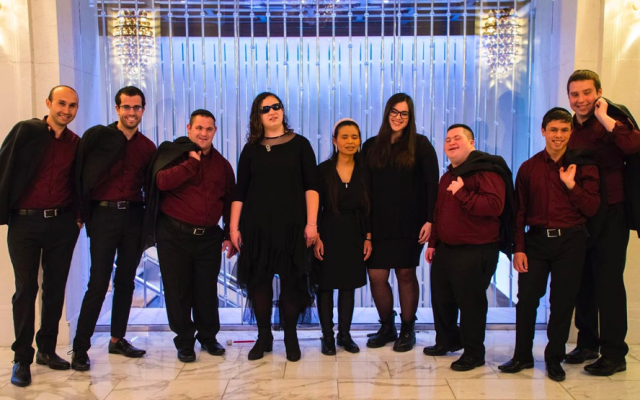
Israel’s Sport and Culture Minister Miri Regev wrote to the European Broadcasting Union (EBU) today asking that they reconsider the rehearsal time line before the Grand Final, so that Israel’s potential contestants could both participate in and observe Shabbat, the Jewish day of rest, at the same time.
Per EBU rules, the final rehearsal before the Grand Final must be done within the 24 hour period beforehand. As the final is on the evening of Saturday, May 18, 2019, that would mean that Israel’s final rehearsal would take place during Shabbat, which starts at sunset the day before. Participation in the rehearsal is mandatory, and a large part of the judges’ score is formed here and the rehearsal used as a backdrop should a technical issue or other matter interrupt a performer on the night of the final itself.
The letter was sent by Regev as the bookmakers’ favorite to win Kochav Haba (Rising Star), the format Israeli Public Broadcasting Company KAN is using to decide Israel’s entry, is Shalva, a group of young musicians with disabilities who are also known for their strict adherence to Shabbat. The group’s rabbi, Kalman Samuels, announced before that the group should observe Shabbat and that the group may pull out if the EBU does make an exception for them.
“I strongly urge you, true to the spirit we all believe in, to reconsider an exception to your rule and to enable the Shalva Band, if it wins the local contest, to participate according to their freedom of conscience and without violating their most sacred religious practices,” Regev wrote. “All members of the Shalva Band are extremely talented people with special needs and complex disabilities, who have thrived and excelled in bringing their special and most gifted voices to an ever-larger audiences while exemplifying the great values of equality, human dignity and diversity.”
“I am thus greatly concerned about the implications of strictly abiding by the rule of live performance on stage since it effectively prevents observant Jews, in Israel and elsewhere, from ever participating in the Eurovision Song Contest. Surely, you understand that such a result is the complete opposite of the lofty, humane and inclusive democratic spirit, which has made the Eurovision Song Contest such a powerful cultural phenomenon worldwide.”
Regev is a controversial figure in Israeli politics, and Eurovision would not be the first occasion where the issue of Shabbat and partipation has come up. Regev famously refused to attend the Opening Ceremony of the 2016 Summer Olympics to observe Shabbat. A former Brigadier-General in the Israeli military, she also served as the Israeli Defense Force spokeswoman during Israel’s 2006 war with Lebanon.
Israel’s host Assi Azar took to Twitter to remind Israel that Regev and others were getting ahead of themselves as there are still five participants in Kochav Haba.
כמנחה התוכנית אני מרגיש צורך להזכיר לחלקנו – להקת שלווה עדיין לא זכו, ויתכן שגם לא יזכו. הם אמנם חלק מרביעית הגמר והם סופר אהובים אבל יש עוד משתתפים אהובים מאד בתחרות ולכולם פוטנציאל גבוה לזכיה!
— Assi azar (@assiazar) February 4, 2019
Shalva Band was formed twelve years ago by drummer Shai Ben Shushan, who sustained a serious head injury while on active duty with the Israeli military. Shushan then joined Shalva, a Jerusalem based disabilities support and advocacy group, and formed the band with other Shalva members who had musical talent. The Band’s singers, Dina Samteh and Anael Khalifa, are blind, and some members have Down’s Syndrome. The Band is famous in Israel for touring annually with a slate of cover songs.
Looking to equal Netta’s win at Eurovision 2018 with “Toy,” Shalva Band are currently competing with Shefita (herself controversial for being accused of making fun of and appropriating Yemeni accents and looks), Kitria, Maya Bouskilla, and Avraham de Carvalho.
Do #YOU think the EBU should accommodate Israel’s Shabbat request? What do #YOU think of the Israeli finalists at HaKokhav Haba so far? Comment below, in our forum, or on social media.


 ESC 2025: Running order for the semi-finals have been finalized
ESC 2025: Running order for the semi-finals have been finalized
 Ziferblat Interview: “We are a perfect example of how Ukrainian traditions and Western musical styles can blend together.”
Ziferblat Interview: “We are a perfect example of how Ukrainian traditions and Western musical styles can blend together.”

 Israel: Yuval Raphael’s “New Day Will Rise” Released
Israel: Yuval Raphael’s “New Day Will Rise” Released



